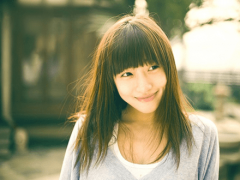举行的英文
"举行"的英文翻译是"hold"。下面我将详细解释"举行"这个词的意义和在不同语境中的用法。"举行"是一个动词,用于描述组织、安排或进行一项活动、仪式或事件。它表示在特定时间和地点进行某种活动,并包括计划、准备和实施的过程。"举行"这个词可以用于各种场合和情境。例如,我们可以使用"举行"来描述以下类型的活动:1. 会议:例如,"The conference will be held in the main auditorium."(会议将在主要礼堂举行。)2. 演出/表演:例如,"The school will hold a concert next week."(学校将在下周举行一场音乐会。)3. 庆典/庆祝活动:例如,"They plan to hold a grand celebration for their anniversary."(他们计划为他们的周年纪念举行一场盛大的庆祝活动。)4. 研讨会/讲座:例如,"The university will hold a workshop on entrepreneurship."(大学将举办一场有关创业的研讨会。)5. 选举/投票:例如,"The country will hold its presidential election next month."(该国将在下个月举行总统选举。)6. 婚礼:例如,"They are planning to hold their wedding ceremony in a beautiful garden."(他们计划在一个美丽的花园里举行婚礼仪式。)7. 运动比赛/锦标赛:例如,"The city will hold an international tennis tournament this summer."(该城市将在今年夏天举办一项国际网球锦标赛。)此外,在更正式的场合中,我们也可以使用"conduct"或"organize"来代替"hold",表示类似的意思。总结来说,"举行"的英文翻译是"hold"。它是用于描述组织、安排或进行各种活动、仪式或事件的动词。根据具体的语境和情况,"举行"可以用于会议、演出、庆典、研讨会、选举、婚礼和运动比赛等场合。
举行的英文
举行na.hold; stage网络take place; come off; celebrate网络释义na. 1.hold; stage例句释义:全部,hold,stage,take place,come off,celebrate更多例句筛选1.Many Mexican Americans celebrate Las Posadas, a procession that re-enacts Mary and Joseph's search for a place to bed down in Bethlehem.很多墨西哥裔美国人举行波萨达斯巡游(LasPosadas),重演玛丽和约瑟夫在伯利恒(Bethlehem)寻找栖身之处的一幕。2.It is an important source of information as a player, letting you know when tournaments are and the latest policy decisions of the AFDA.对于运动员来说,要了解锦标赛举行的时间及AFDA最新的政策决议,该杂志就是很重要的信息来源。3.The wedding came on the heels of WWII and Queen Elizabeth is said to have saved ration cards to purchase material for her dress.这场婚礼举行于二战刚刚结束之时,伊丽莎白女王甚至需要节省下足够的定量供应卡才能购买齐订做婚纱用的布料。4.Officials said the only tickets still available were for soccer qualification games to be held in other Chinese cities.政府官员们还表示,目前只有在中国其他城市举行的足球预赛的门票还有剩余。5.The demonstrators believe he lacks legitimacy and want him to call fresh elections, but Mr Abhisit has refused to step down.抗议者认为,阿披实担任总理缺乏合法性,希望他重新举行选举,但阿披实拒绝下台。6.In between changing diapers he's been able to compete in two meets this year: the Long Beach Grand Prix and a local meet in Irvine.在这两者之间不断变化的尿布他都能够适应竞争,今年在两个:长滩大奖赛和欧文在当地举行。7.Mother made a variety of dishes using our peanuts and instructed that the festival should be held in the thatched pavilion in the garden.母亲把花生做成好几样的食品,还吩咐这节期要在园里底茅亭举行。8."He had the birthday Saturday, " he said. "We made him a birthday party. We had to have fun with with him. How? "他说:“他星期六过生日。我们为他的生日举行聚会。我们必须让他高兴,但是如何能做到呢?”
举行的英文单词
你知道举行的英文单词怎么写吗?一起来学习一下吧! 举行的英文单词 :hold 过去分词: held 过去式: held 现在分词: holding 第三人称单数: holds 词组习语: hold back 1. 保留,保持控制:在某人的占据或控制之下 保留有价值的信息;忍住眼泪 held back valuable information; held back my tears. 2. 阻止…的发展 3. 抑制,自制 hold down 1. 限制 请限制音量 Please hold the noise down. 2. 有(工作) 有两份工作 holds down two jobs. hold forth 1. 滔滔不绝地说 hold off 1. 远离;抵制 远离债权人 held the creditors off. 2. 制止或阻挠做某事 等到有更多资料时再做 Let's hold off until we have more data. hold on 1. 抓住…不放;依附 2. 继续做某事;坚持 3. 稍待:尤指不挂上电话以等待想要的或要求的事物 hold out 1. 提供,提出:提供或显示可得到的东西 2. 继续给予或提供;持续 我们的食物还很多 Our food is holding out nicely. 3. 继续反对 防卫部队已坚守了一个月 The defending garrison held out for a month. 4. 拒绝达成或履行协议 hold over 1. 继续维持:处于与以前同样状态或情形 2. 超越正常时间续任 3. 延长…的期限 电影又继续放了几星期 The film was held over for weeks. hold to 1. 对…忠诚或忠实 她很忠于自己的决定 She held to her resolutions. hold up 1. 阻挠或延迟 2. 通常用枪威胁以抢劫 3. 作为例子提供或展示 把这篇论文给学生作范例 held the essay up as a model for the students. 4. 制衡,应付:仍然有效或不失力量地继续下去;应付 想办法应付每天的生活压力 managed to hold up under the daily stress. hold with 1. 同意;支持 我不同意你的理论 I don't hold with your theories. be left holding the baby (或美bag) 1. (非正式)(尤指没有警告)被加一项责任 don't hold your breath hold someone/thing at bay hold one's breath 举行的英文单词例句: 1. He struggled to hold the bike down on the banked corners. 拐过斜弯时他竭力将自行车把稳。 2. It is hard to get hold of guns in this country. 在这个国家里要搞到枪支是很困难的。 3. They can't believe you can even hold a conversation. 他们不敢相信你竟然能够把一场对话进行下去。 4. The country will hold democratic elections within a year. 该国将在一年之内举行民主选举。 5. They're likely to hold big fire sales to liquidate their inventory. 他们可能会举行清仓大甩卖。 6. Estonia said it too planned to hold a referendum on independence. 爱沙尼亚称其也计划就独立问题进行全民公决。 7. Jane is determined to hold on to her fortune. 简决心要守住自己的财产。 8. The couple hold the unfashionable view that marriage is a sacred union. 夫妇俩对婚姻的看法很传统,认为婚姻是神圣的结合。 9. She can hold her own against almost any player. 她几乎能和任何一名选手一较高下。 10. She was determined not to let the illness take hold again. 她决心不让疾病再次击垮自己。 11. The group said it continues to hold 1,774,687 Vons shares. 该集团称其继续持有1,774,687股冯氏公司的股份。 12. Democrats say arguments against the bill won't hold up. 民主党人声称反对该议案的论点站不住脚。 13. They needed more time to consider whether to hold an inquiry. 他们需要更多的时间来考虑是否进行调查。 14. Just hold tight to my hand and follow along. 抓紧我的手,跟着我。 15. He stifled his temptation to take hold of Ivy and shake her. 他压抑住想要抓住艾薇摇晃她的冲动。
举办的英语是什么?
举办的英文是:conduct词语分析:音标:英 [kən'dʌkt] 美 [kən'dʌkt]n.行为;举动;品行短语:conduct activities 开展活动conduct an orchestra 指挥管弦乐队conduct business 管理生意conduct electricity 导电例句:Your conduct is not consistent with what you say.你的言行不一致。His behavior transgressed the unwritten rules of social conduct.他的行为违反了不成文的社交规范。His conduct roused the suspicion of the police.他的举动引起了警察的怀疑。He has good conduct.他品行端正。A man of irreproachable conduct commands the respect of others.品行端正的人,受人尊敬。近义词:behave 表现;行为;举止comport 举止
举办用英文怎么说?
问题一:我们将举办一个活动。用英语怎么说 等
问题二:举办用英语怎么说 hold; conduct; run; 举办
这个美国流行音乐组合将会在四川成都举办演唱会。
The American pop group Backstreet Boys will hold a concert Friday in Chengdu in southwest China's Sichuan province.
问题三:将会举行怎么用英语怎么说说 在描述什么事将要举行,英文通常是这么来表达的。 sth. to be held/sth. will be held. 比如:毕业典礼在下个星期将会举行(The graduation ceremony will be held next week.) 欢迎大家都来参加下周三将会举行的派对 ( Everyone is wele to the party to be held next Wednesday.)
问题四:举办派对用英语怎么说 你好,很高兴在这里回答你的问题:
举办派对
.
have a party
hold a party
问题五:举行派对用英语怎么说 have a party
问题六:举行仪式用英语怎么说 held a ceremony
perform a ceremony
have services
不同语境是不同的
问题七:举行晚会用英语怎么说 20分 楼主您是指什么样的晚会?
如果是小型的晚会就是:hold an evening party
如果是联欢晚会就是:hold an evening get-together
如果像是春节联欢晚会那种盛大的聚会就是:hold an evening gala
问题八:在哪里举行?用英文怎么说 Wh功re is it going to be held?
Where will it take place?
问题九:我们应该举办一个展览会 用英语怎么说 WE SHOULD HOLD AN EXHIBITION
举办用英文怎么说
问题一:我们将举办一个活动。用英语怎么说 等
问题二:举办用英语怎么说 hold; conduct; run; 举办
这个美国流行音乐组合将会在四川成都举办演唱会。
The American pop group Backstreet Boys will hold a concert Friday in Chengdu in southwest China's Sichuan province.
问题三:将会举行怎么用英语怎么说说 在描述什么事将要举行,英文通常是这么来表达的。 sth. to be held/sth. will be held. 比如:毕业典礼在下个星期将会举行(The graduation ceremony will be held next week.) 欢迎大家都来参加下周三将会举行的派对 ( Everyone is wele to the party to be held next Wednesday.)
问题四:举办派对用英语怎么说 你好,很高兴在这里回答你的问题:
举办派对
.
have a party
hold a party
问题五:举行派对用英语怎么说 have a party
问题六:举行仪式用英语怎么说 held a ceremony
perform a ceremony
have services
不同语境是不同的
问题七:举行晚会用英语怎么说 20分 楼主您是指什么样的晚会?
如果是小型的晚会就是:hold an evening party
如果是联欢晚会就是:hold an evening get-together
如果像是春节联欢晚会那种盛大的聚会就是:hold an evening gala
问题八:在哪里举行?用英文怎么说 Wh功re is it going to be held?
Where will it take place?
问题九:我们应该举办一个展览会 用英语怎么说 WE SHOULD HOLD AN EXHIBITION
开展某某活动 英文怎么表达
英语中,开展一般可以用“举办”或“发生”来替代如果句子中主语是人,则可以表述为:sb. hold/carry out/develop + 活动如果句子中主语是某项活动,则可以表述为:活动 + take place扩展资料:除了一般性的活动外,当表示开展一项运动/比赛等时,可以用以下句式表达:carry on (conduct, make) a campaign 开展运动organize (promote, sponsor, take part in) a campaign 组织(促进,赞助,参加)一场运动campaign 英[kæmˈpeɪn] 美[kæmˈpen] n. 运动;战役;竞选运动;季节性竞赛;vi. 作战;参加[发起]运动,参加竞选;参战,参加战役;参考资料 :百度翻译-开展百度翻译-campaign
举办 奥运会的 举办 用英文怎么表示?
举办奥运会,运动会什么的,一般用hold如:hold a festival on Independence Day
在独立纪念日举办庆祝会。
其它如:The company provides a three-month training course. 公司举办三个月训练课程。
They had a family feast to celebrate it. 他们举办家宴, 以示庆贺。
This week there's an exhibit of Chinese paintings at the art gallery. 本星期在美术馆举办中国画展。
This concert has been arranged under the auspices of the Knight Group. 这次音乐会是由奈特集团赞助举办的。
英语是的的过去式
表示一般过去式的动词通常用动词的过去式形式来表示,而动词的过去式是在动词原形的基础上变化的.动词的过去式可分为规则动词和不规则动词.规则动词的过去式变化如下:
(1)一般情况下,动词词尾加 ed ,如:
work—worked; play—played;want— wanted; act—acted
(2)以不发音的 e 结尾动词,动词词尾加 d,如:
live—lived; move—moved; decide—decided; decline—declined; hope—hoped;
(3)以辅音字母 + y结尾的动词,把y变为i 再加ed,如:
studied tried copied justified cried carried embodied emptied
(4)以一个辅音字母结尾的重读闭音节动词,双写词尾辅音字母,再加 ed,如:
stopped begged fretted dragged dropped planned dotted dripped
(5)注:不规则动词的过去式变化规律性不强,须多加记忆.
go - went,make - made,get - got ,buy - bought ,come - came ,fly-flew
,is/am-was,are-were ,see-saw,bring-brought,do-did,teach-taught, think-thought,
say-said,sit-sat. read-read, spend-spent,
eat-ate,give-gave,sit-sat,tell-told,write-wrote,feel-felt,find-found,hear-heard,know-knew,
put-put,grow-grew,take-took,catch-caught,come-came,become-became,swim-swam,sweep—swept,sing—sang,draw—drew,
以上的(1)至(4)条中的发音均有改变,具体分别有/d/ /t/ /id/.
而不规则动词的过去式的发音则略有不同,但是有些还是按照一定规律变化的.如以上的:make - made,get - got ,buy - bought
,come - came ,fly-flew ,bring-brought,teach-taught, think-thought,
say-said,sit-sat. read-read,
spend-spent,give-gave,tell-told,write-wrote,feel-felt,find-found,hear-heard,know-knew,put-put,grow-grew,take-took,catch-caught,come-came,become-became,swim-swam,sweep—swept,sing—sang,draw—drew.
仔细看一看,能发现它们的一些变化规律,也就是说不需要死记硬背这些过去式,知道了原型和变化规律,就可以写出来了.有的变化部分读音也是有规律的.分类记忆是对学习过去式很有帮助的!
编辑本段
用法:
(1)
表示过去某一时刻或某一段时间内所发生的动作或情况,通常一般过去式带有表示动作时间状语的词,词组或从句,如 yesterday, the day
before last, last week, two days ago 等,上下文清楚时可以不带时间状语. I worked in that factory
last year. 去年我在那一家工厂工作. I went to the Tian Long Mountain yesterday.
昨天我们去了天龙山.
一般过去时的用法一.概念:一般过去时是表示在过去的时间里发生的动作或状态,通常与表示过去的时间状语连用.
二.时间状语:yesterday, the day before yesterday, two days ago, long long ago,a
minute ago,last year(week, month), just now, at that time, in those days.
三.过去时的用法:1.有确定的过去时间状语时要用过去式.
例:We had a good time last week.
2.表示过去连续发生的动作时,要用过去式.
例:The boy closed the door, turned off the window, and then went to bed.
3. 表示过去一段时间内经常或反复的动作,要用过去式.
例:She often came to help me at that time.
四.一般过去式的构成形式:☆Be动词的过去式: (1)肯定句:主语+ be动词的过去式(was, were)
例:He was ill yesterday. She was nine two years ago.They were my students
long long ago.
(2)否定句:主语+ be动词的过去式(was, were)+ not
例:He was not ill yesterday.She was not nine two years ago.They were not my
students long long ago.
(3)一般疑问句:直接把be动词提到句首.
例:Was he ill yesterday?
肯定回答:Yes, he was.
否定回答:No, he wasn't.Was she nine two years ago? Yes, she was. / No, she
wasn't.Were they your students long long ago? Yes, they were. / No, they
weren't.
☆实意动词的过去式:(1)肯定句:主语+动词的过去式
例:He played football last week.She watched TV last night.
(2)否定句:主语+ did not +动词原形
例:He did not play football last week.She didn’t watch TV last night.
(3)一般疑问句:Did +主语+动词原形 例:Did he play football last week?
回答:Yes, he did./ No, he didn't.
Did she watch TV last night?
回答:Yes, she did. / No, she didn’t.
五.动词变过去式的几种常用规则:1.一般动词直接+ ed;
例:look--looked want--wanted listen --listened
2.以e结尾的词直接+ d;例:live--lived phone--phoned
3.以辅音字母加y结尾, 变y为i加ed;例:try--tried study--studied
4.重读闭音节结尾的,词尾只有一个辅音字母,双写词尾辅音字母+ ed;例:stop--stopped plan--planned
5.不规则动词: 动词由原形转变为过去式时不按词尾加“-ed”之变化规则者叫做不规则动词.小学常见的动词不规则过去式如:是be/is/am/are-
was, 是are- were, 来come-came, 去go- went, 有have- had, 做/干do- did, 做make- made
读read- read, 放put- put, 切割cut- cut,写write- wrote, 带走take- took, 买buy- bought,
带来bring- brought,想think- thought, 看见see- saw, 说say- said, 说话speak-
spoke,打破break- broke, 得到get- got, 跑run- ran, 告诉tell- told,唱sing- sang, 喝drink-
drank, 吃eat- ate, 游泳swim- swam,开始begin- began, 偷steal- stole, 遇见meet- met,
卖sell- sold, 坐sit-
sat,跑run-ran,读read-read,想要want-want,知道know/known,fall-fell等等
表示过去某一时刻或某一段时间内所发生的动作或情况,通常一般过去式带有表示动作时间状语的词,词组或从句,如 yesterday, the day
before last, last week, two days ago 等,上下文清楚时可以不带时间状语. I worked in that factory
last year. 去年我在那一家工厂工作. I went to the Tian Long Mountain yesterday. 昨天我们去了天龙山.I
stayed at home,yesterday.昨天,我整日呆在家里.
(2)
一般过去时态:表示过去某一时间所发生的动作或存在的状态.谓语动词要用一般过去式.
时间标志:yesterday(昨天), last weekend(上周), last month(上个月), last year(去年), two
months ago(两个月前), the day before yesterday(前天),in 1990 (在1990年), in those days
(在那些日子里)等表示过去的时间状语.
如:
I was born in 1990. (我出生在1990年).
When did you go to the park? (你是什么时候去的公园).
I went to the park last weekend. (我是上周去的公园)
在上面的句子中第一句属于be动词的一般过去时态;
第二句和第三句属于实义动词go的一般过去时态.
1. Be 动词的一般过去时态
在没有实义动词的句子中使用be动词, am is 的过去式为was; are的过去式为were.
构成:
肯定句:主语+was (were) +表语
如:I was late yesterday. (昨天我迟到了.)
否定句:主语+was (were) +not+表语
如:We weren't late yesterday. (我们昨天没迟到)
疑问句:Was (Were) +主语+表语
如: Was you sick yesterday? (你昨天病了吗?)
肯定回答: Yes, I was. (是的,我病了.)
否定回答: No, I wasn't. (不,我没病.)
特殊疑问句:特殊疑问词+was (were) +主语+表语
如:When were you born? 你是什么时候出生的?
关于英语什么过去式进行时
过去进行时,就是指过去某时刻正在发生的事情。采用此时态时,句中一般有标志性时间词,如at that moment,在那个瞬间,when ... 当过去某个时刻。总之,是和过去时刻挂钩。例,When I walked in the room, they were talking.强调我走进房间那个瞬间,他们在说话。
区别于一般过去时,一般过去式就是指过去发生的某个动作,常用的标志词有last night,yesterday等,它们并不强调在某个时刻,而是过去较长的一段时间。
一般将来时表示将来发生的事,常用 be going to do/will do等。如 We will go swimming tomorrow.我们明天要去游泳。
另外,讲讲现在完成时,这是个考察重点和难点。它表示过去发生的事,强调对现在造成了一定影响。如I have finished my homework, so I can watch tv. 我完成了作业,所以我可以看电视了。常用的标志词有since+过去某时间点等。例:Since I left that town,I haven't been back.自从我离开了小镇,就没有回去过了。
不懂追问,满意请采纳~~




